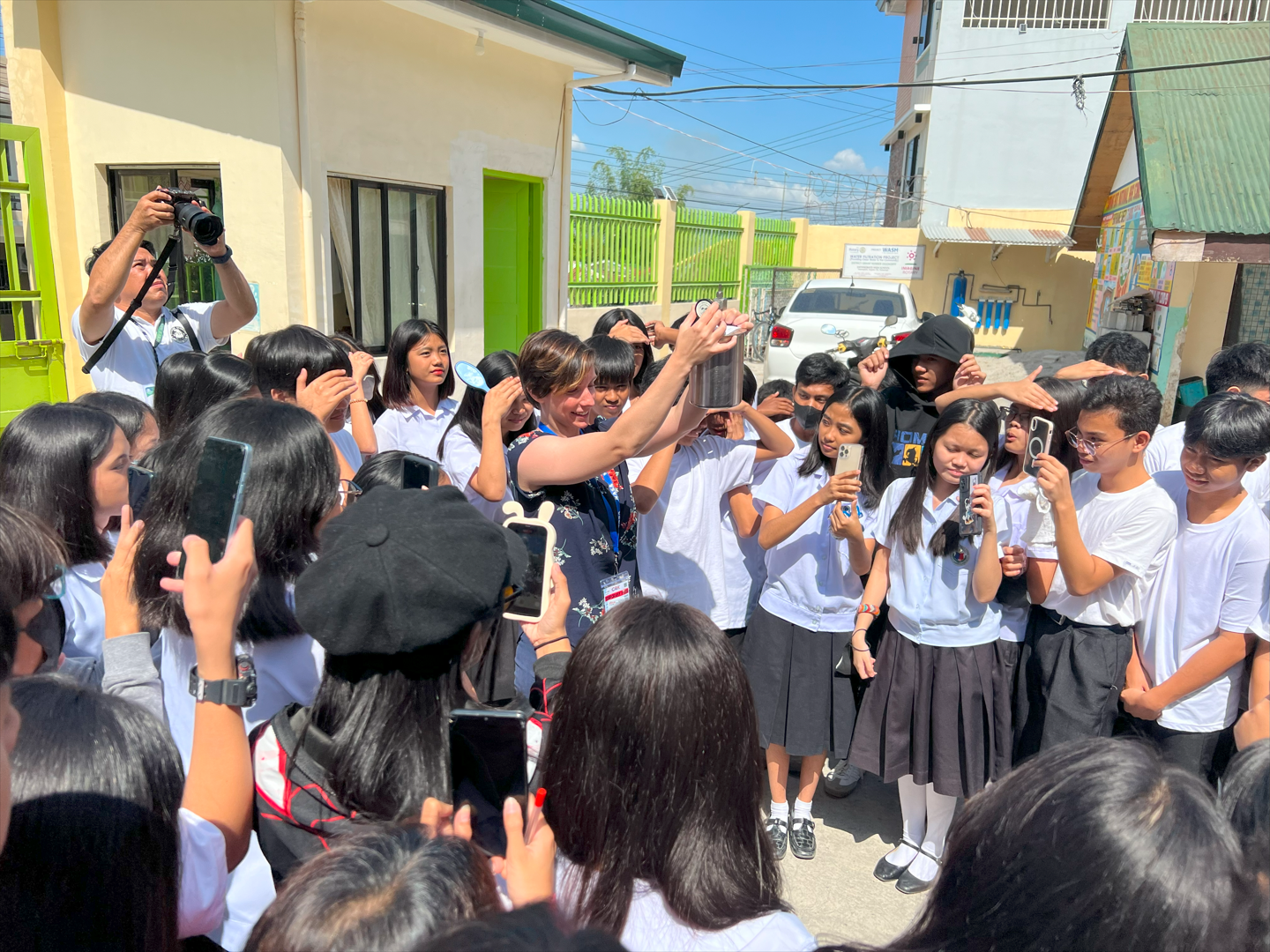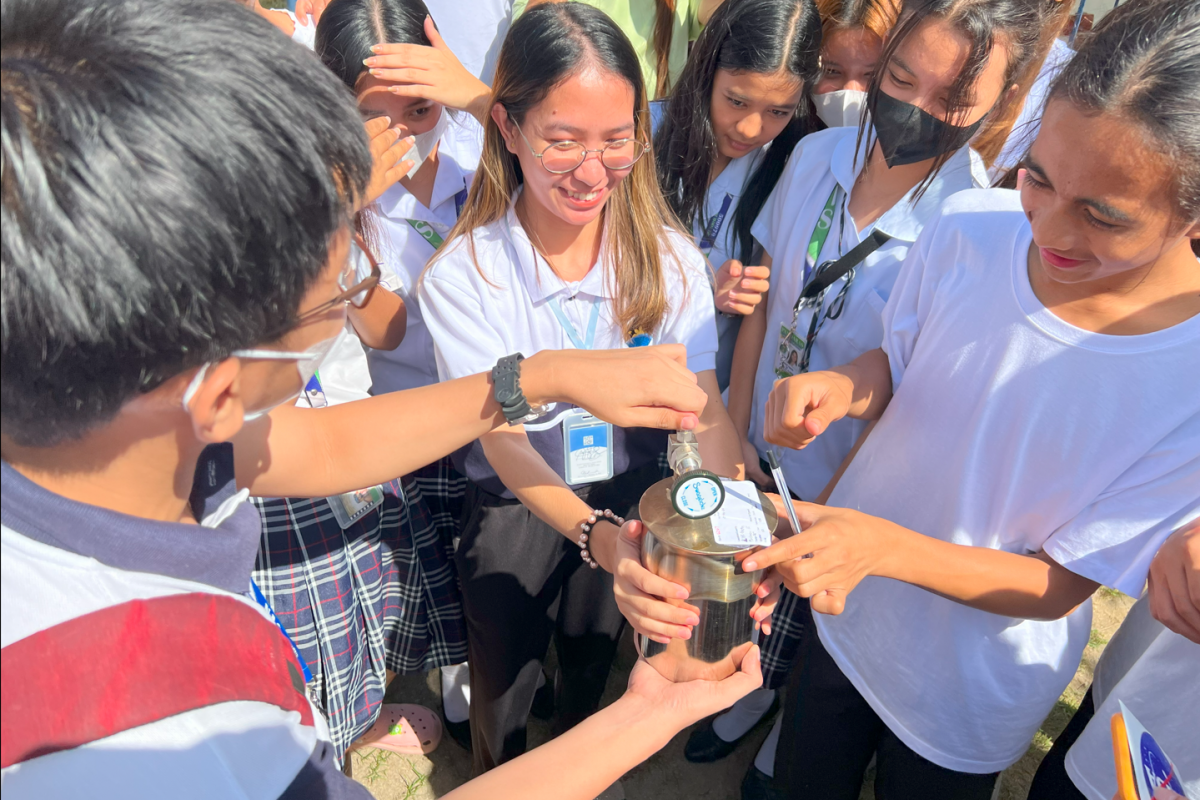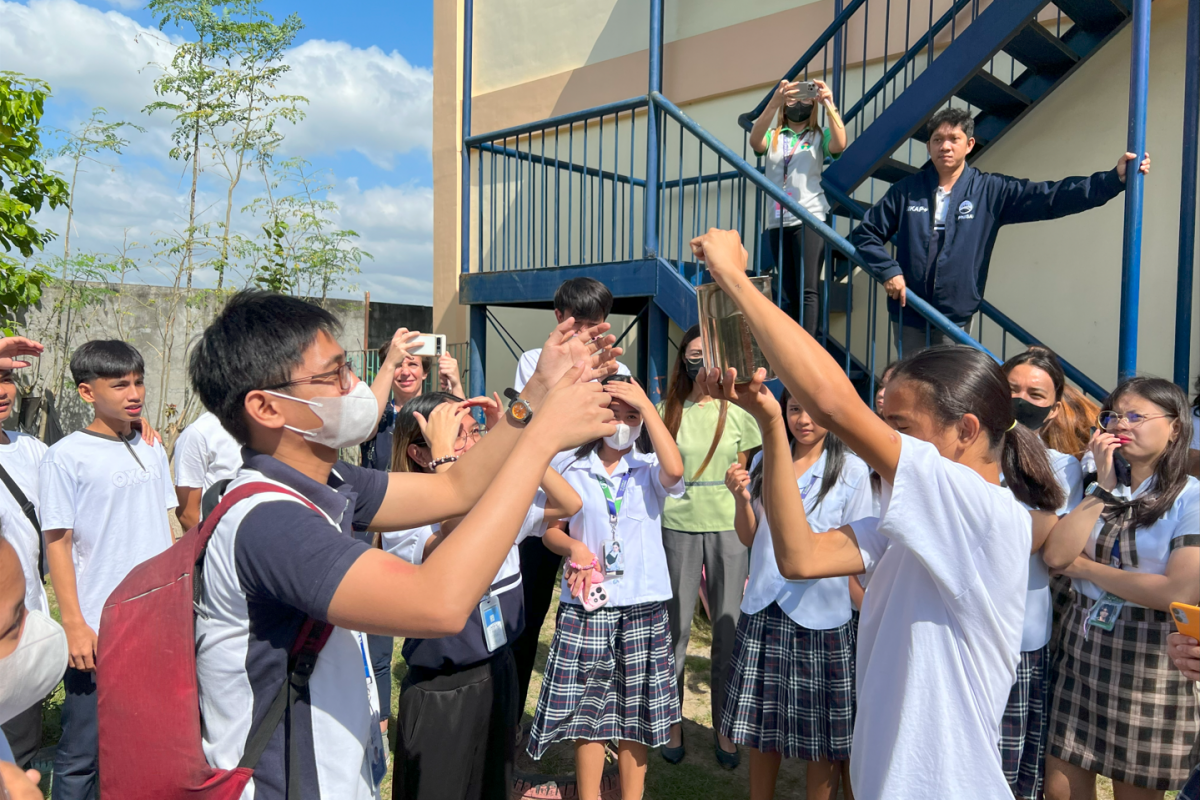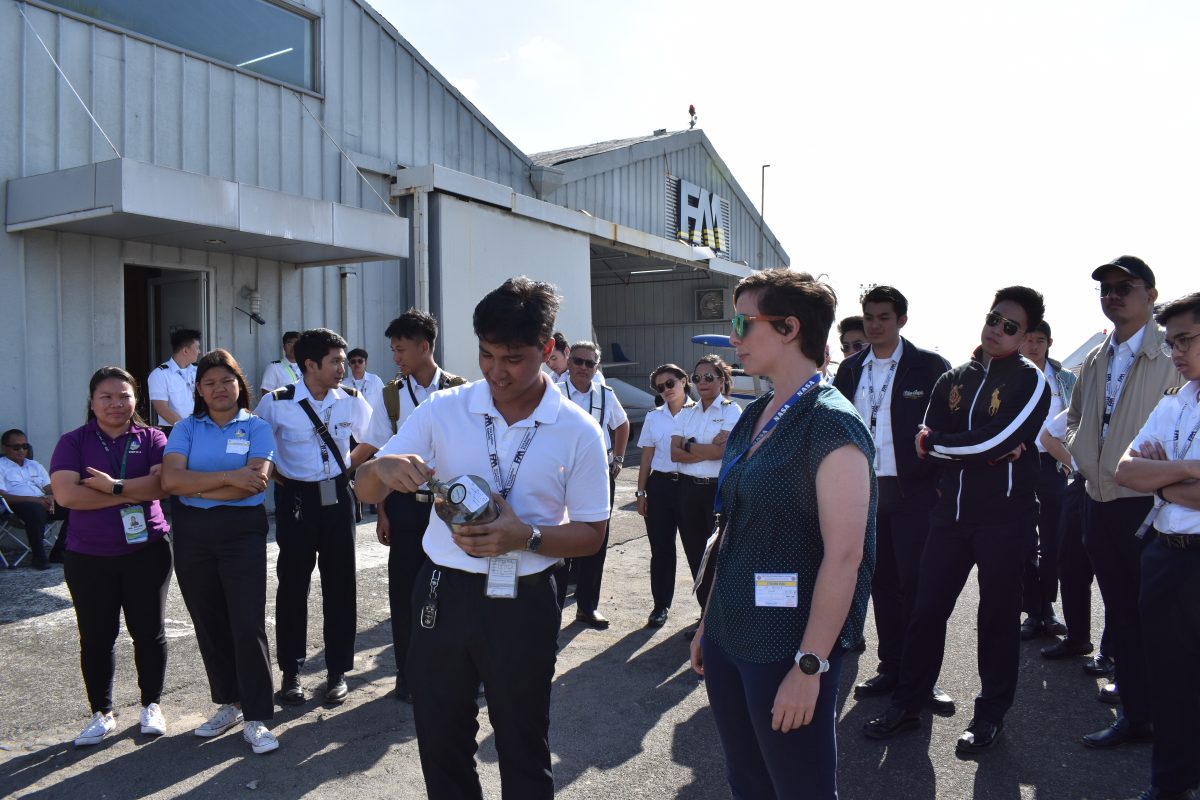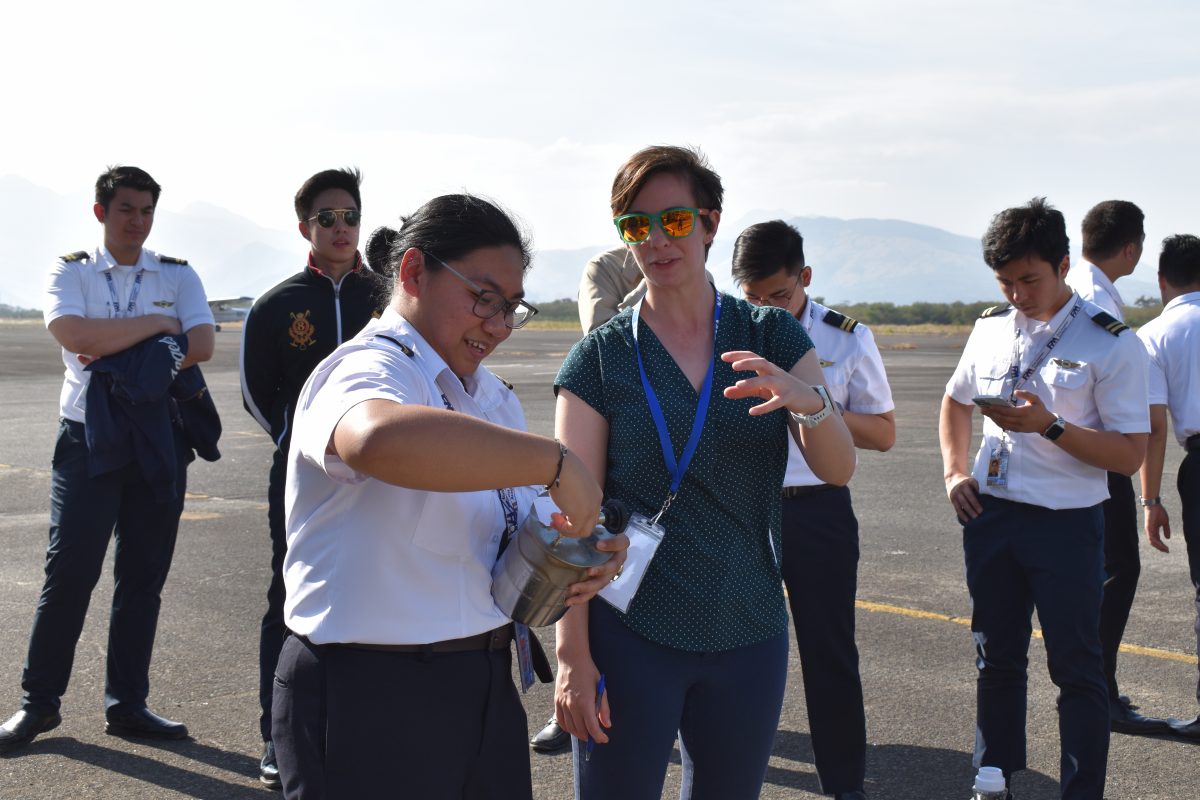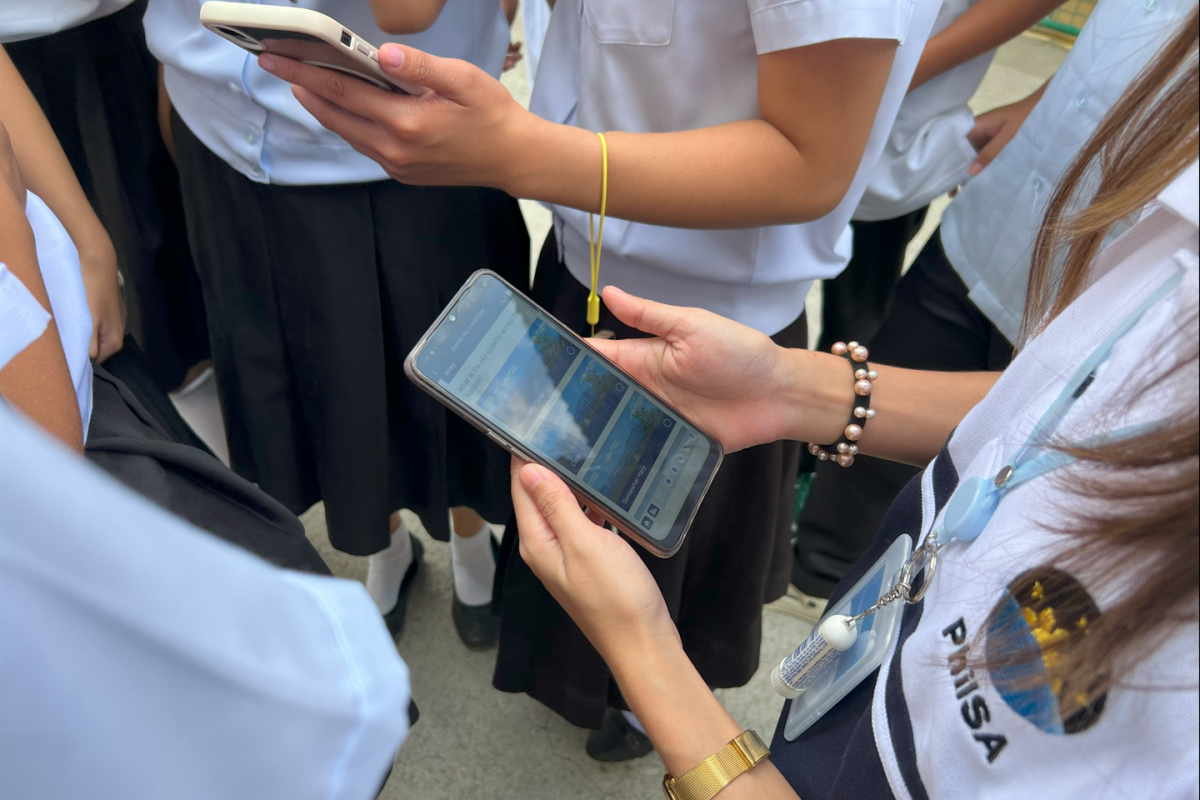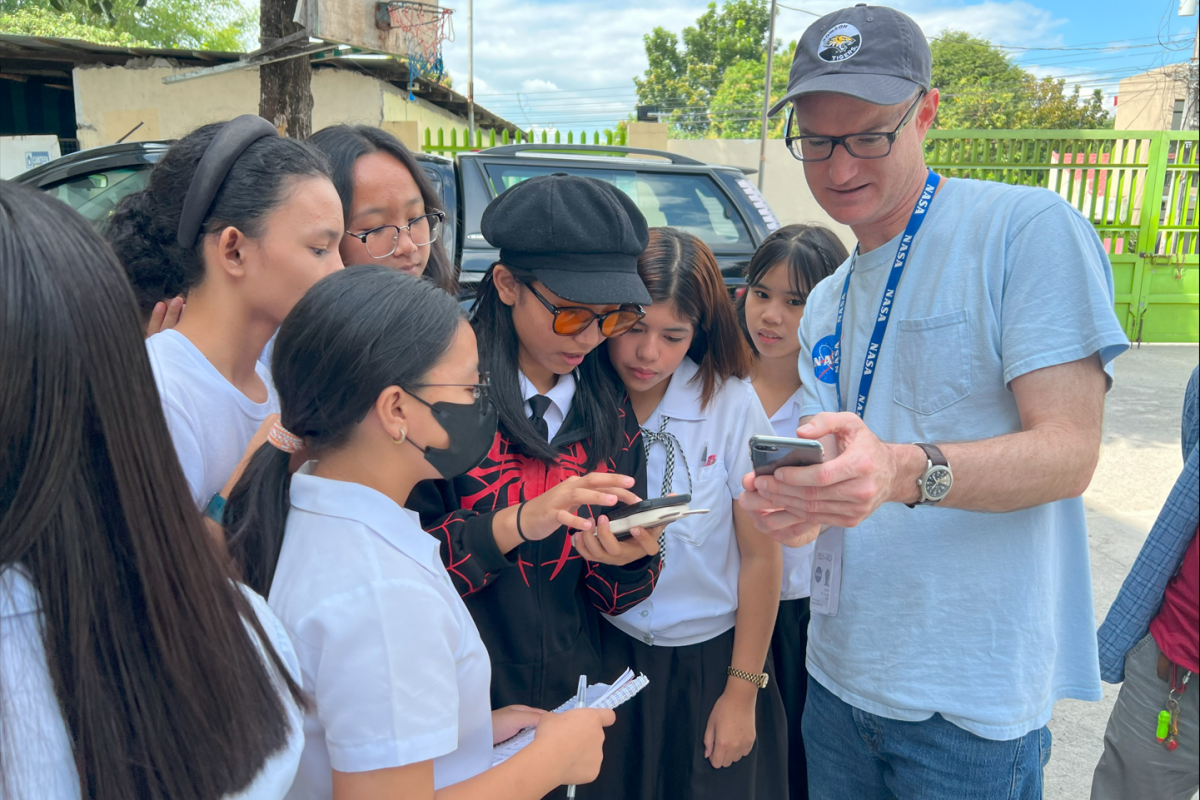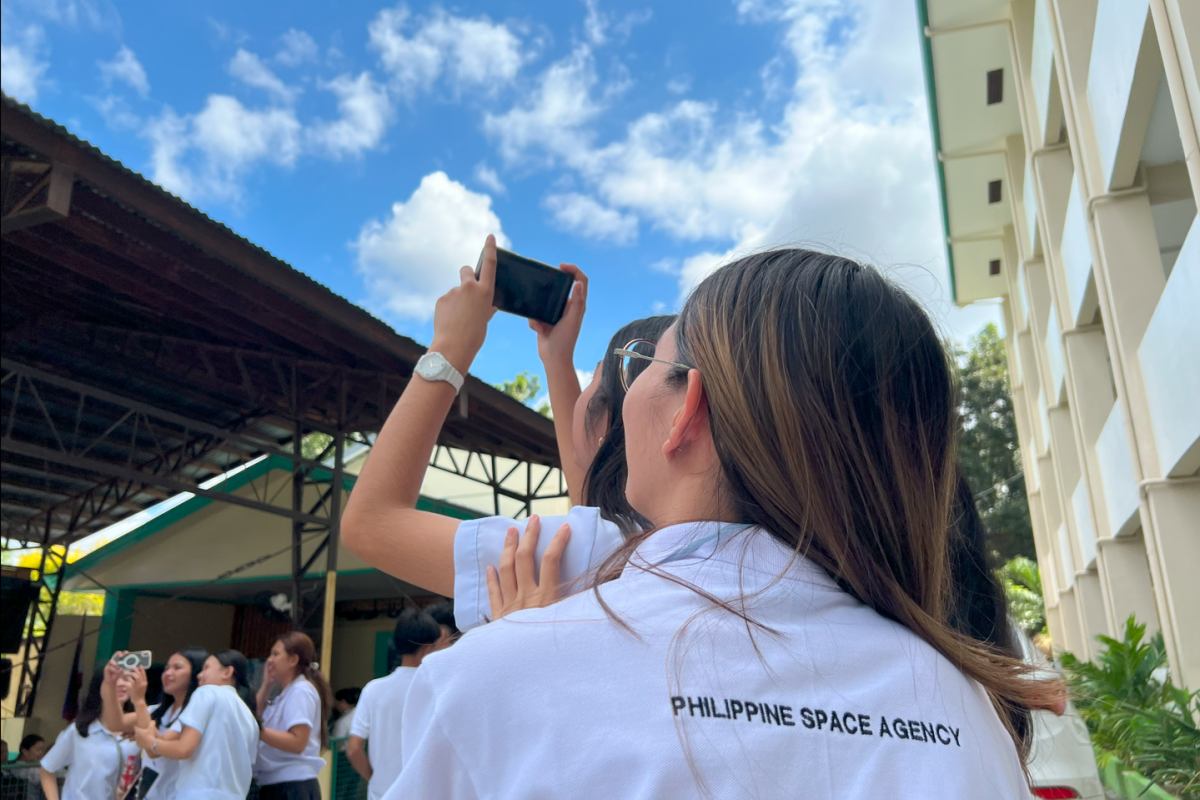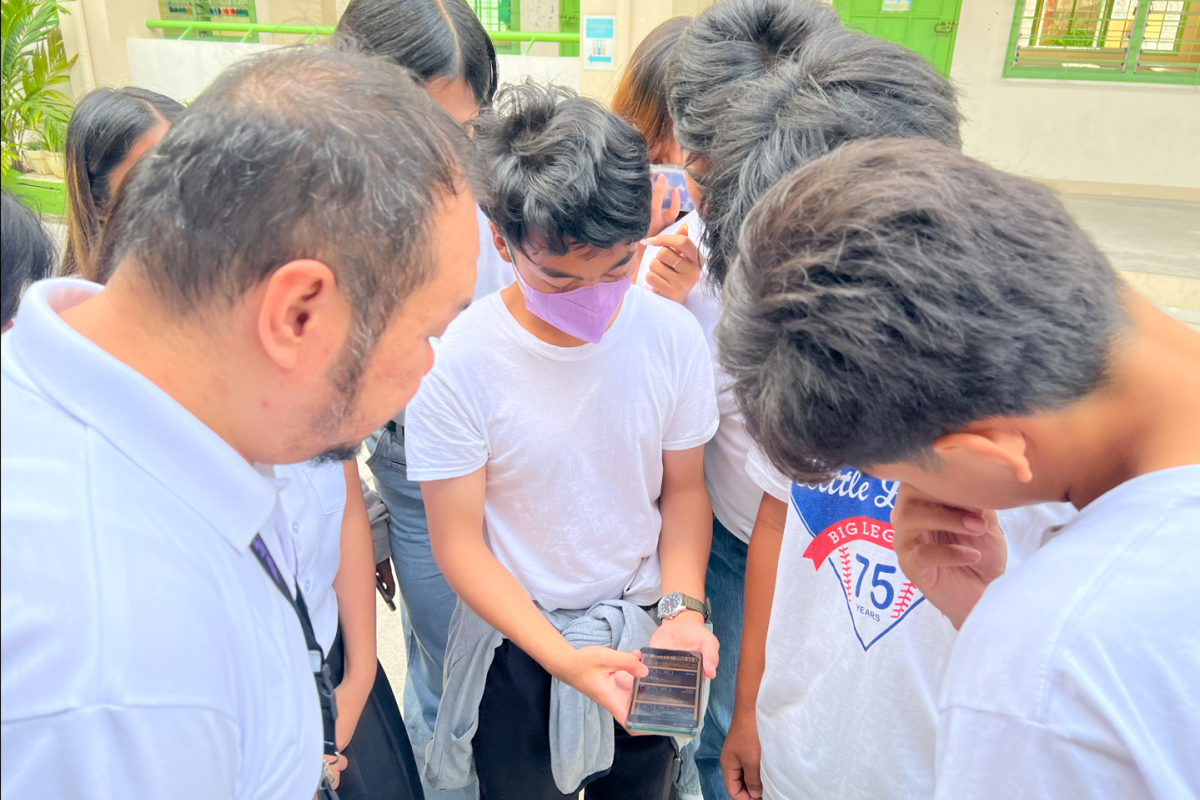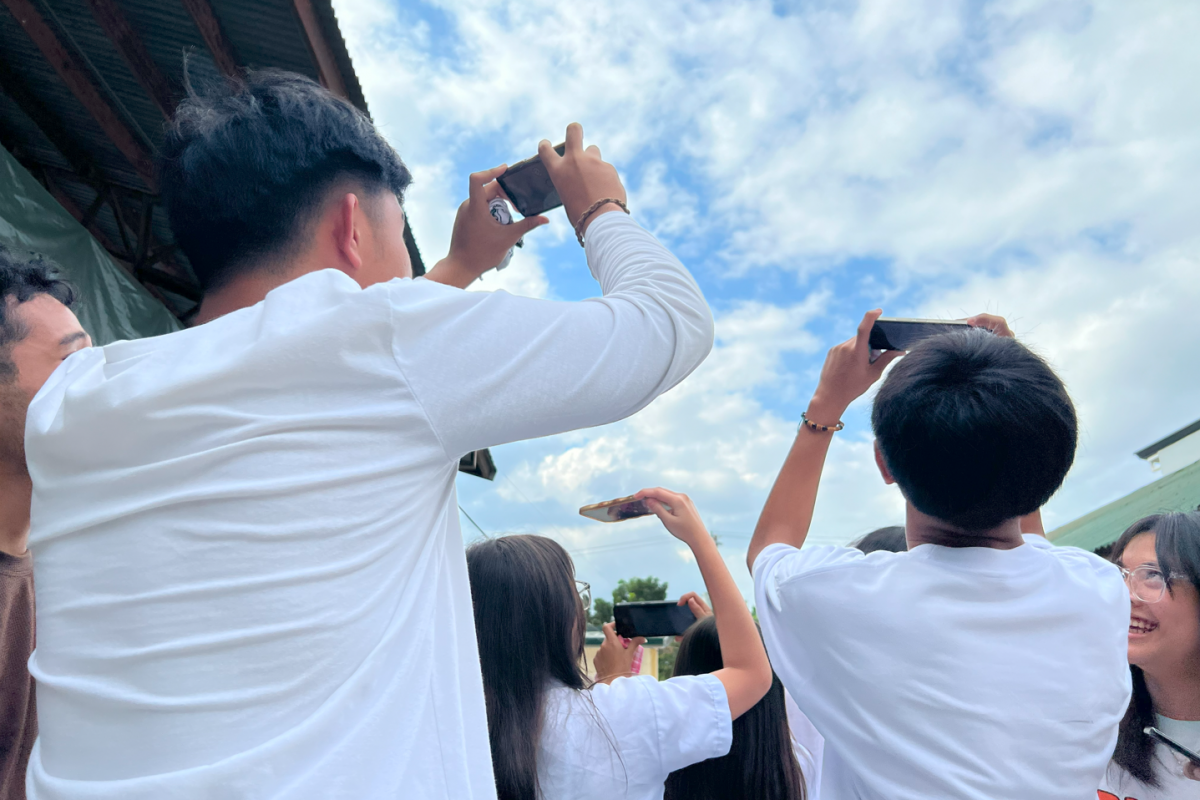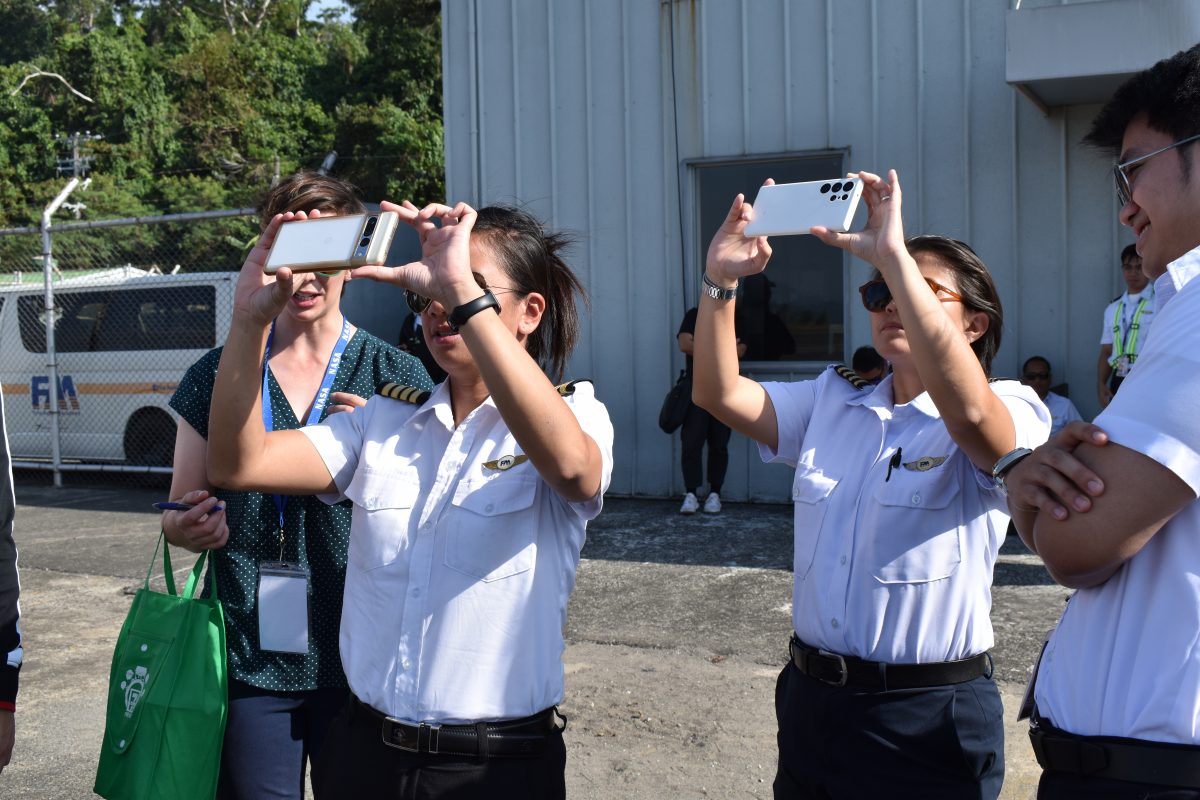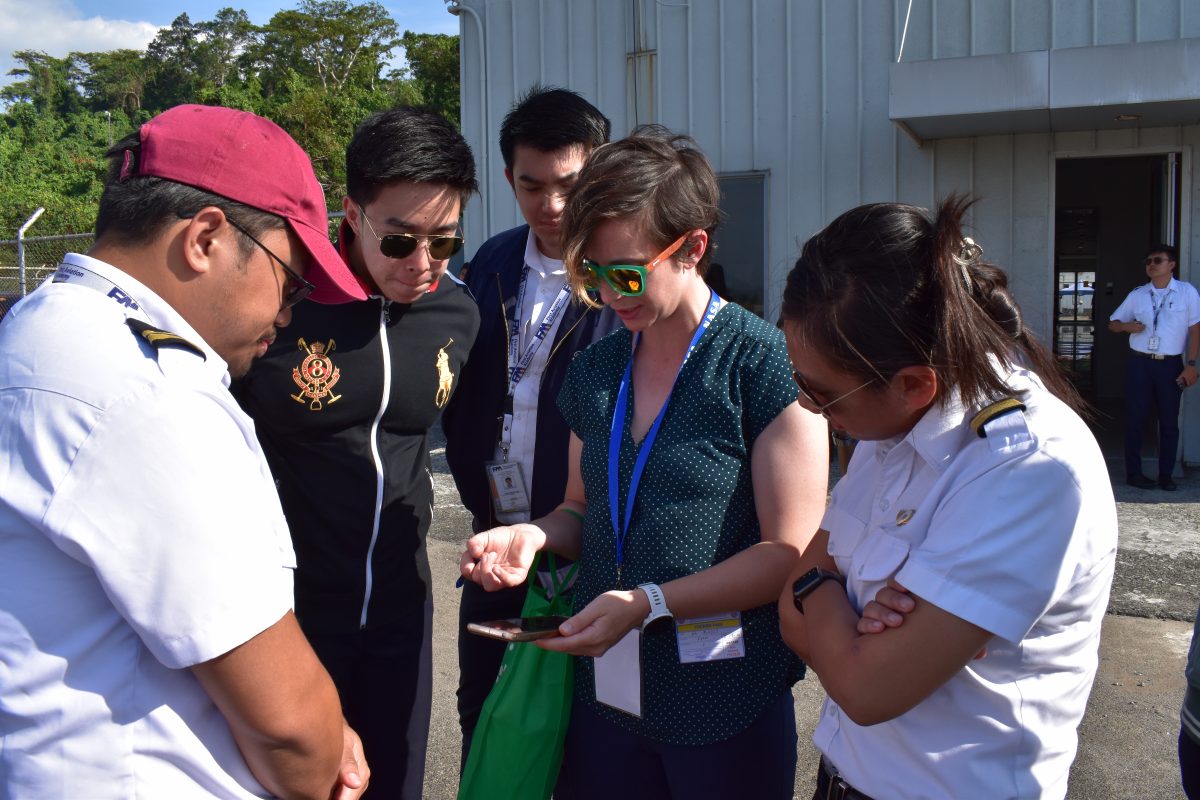In a collaborative effort to explore air quality in Asia through the Airborne and Satellite Investigation of Asian Air Quality (ASIA-AQ) initiative, the National Aeronautics and Space Administration (NASA) conducted a comprehensive educational outreach program in Pampanga from February 7th to 13th, 2024. Partnering with the Philippine Space Agency (PhilSA) and the Department of Environment and Natural Resources (DENR), NASA facilitated a series of school visits aimed at fostering scientific curiosity and environmental awareness among Filipino youth.
Representatives from PhilSA joined Dr. Brenna Biggs, NASA Airborne Science Program (ASP) Science Communications Lead, and DENR representatives during the final two days of the educational outreach program for Grades 7 to 12. The sessions were held in several Philippine schools, including Pandaras Integrated School, Sapang Bato National High School, Angeles City Science High School, and First Aviation Academy.
Checking air quality through the WAS canister
Through the guidance of Dr. Biggs and other experts, the high school students had the unique opportunity to actively participate and collect air samples in their respective campus premises using the WAS canister. Additionally, they received valuable insights into the ASIA-AQ project, its objectives in studying atmospheric conditions across Asian countries, and the significance of monitoring air quality to address environmental concerns.
Looking at clouds through the lens of the GLOBE Observer application
The students engaged in hands-on learning experiences by utilizing the GLOBE Observer application to observe and document various cloud formations. By contributing their observations to this citizen science initiative, students played a vital role in data collection, which will support NASA scientists in validating air quality data and enhancing their understanding of atmospheric dynamics.
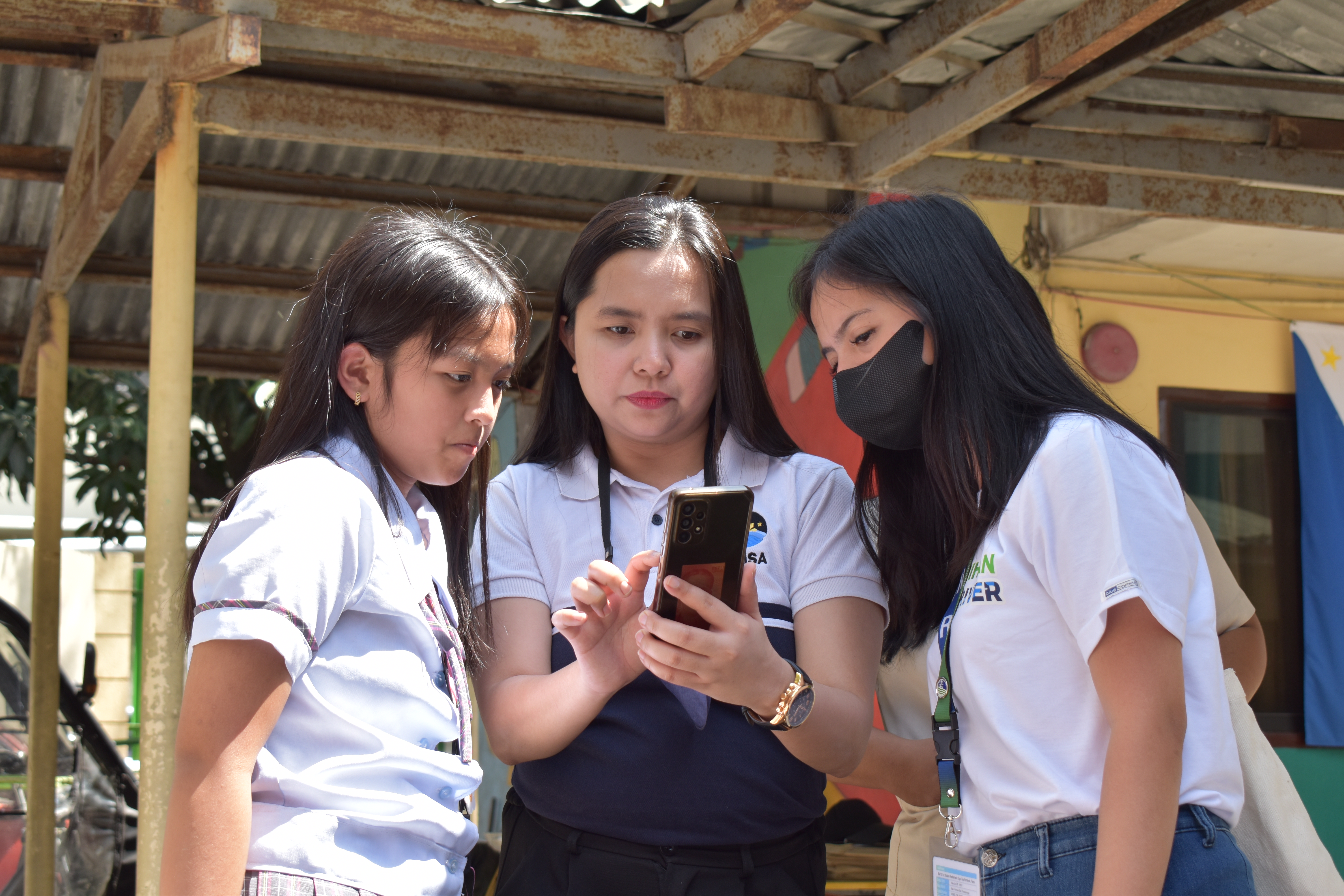
Students of Angeles City Science High School explore the GLOBE Observer application with the guidance of a PhilSA researcher
This educational outreach program is in line with the scientific research flights of NASA, which include the G-III and DC-8 aircrafts. A landmark project by NASA, the DENR– with support from PhilSA, Manila Observatory, the Ateneo de Manila University, and University of the Philippines –was tapped as partner for the said study mission.
This educational outreach underscores NASA’s commitment to fostering scientific and space literacy among the youth. It also aligns with PhilSA’s goal to inspire the next generation of Filipino researchers, scientists, innovators, and enthusiasts and develop a sustainable pool of professionals that would constitute a robust domestic space ecosystem.




